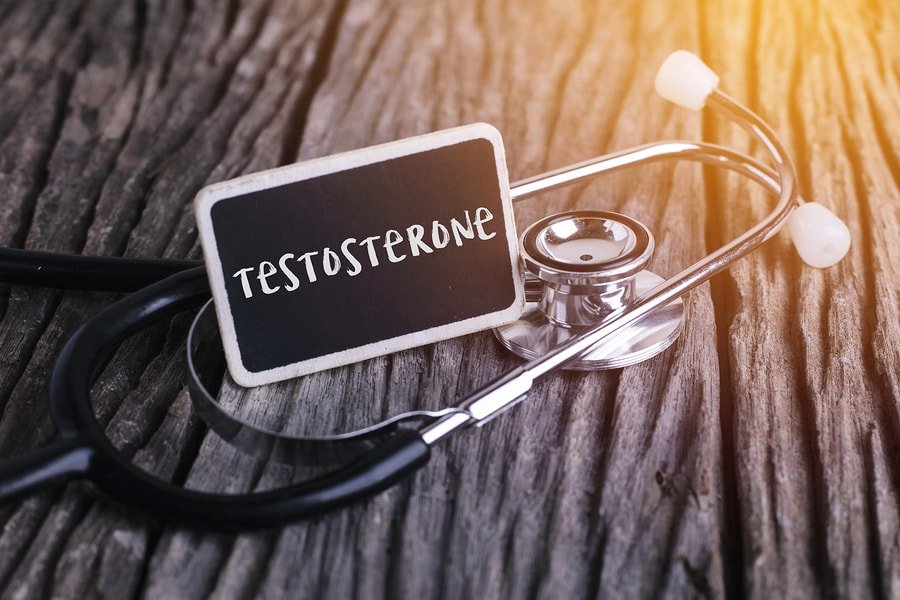
CYP17A1 is important for the production of steroid hormones, including testosterone and estrogen. Gene variants are associated with elevated blood pressure, heart disease, Alzheimer’s, and cancer risk. Read on to find out more about CYP17A1 function, gene variants, and factors that decrease its activity.
What is CYP17A1?
This enzyme is also known as 17,20 lyase. It is one of the cytochrome P450 monooxygenases (CYPs) [1].
CYPs eliminate toxins and drugs from the human body. However, some, like CYP17A1, are not involved in detoxification but in steroid hormone production.
Function
This is an important enzyme in humans that produces:
- mineralocorticoids, which affect sodium and water balance in the kidney [2].
- glucocorticoids, which control the body’s response to stress [2].
- all androgens [3, 4]. It converts pregnenolone to dehydroepiandrosterone, which is converted to androstenedione, testosterone, and dihydrotestosterone [4].
The enzyme is also indirectly responsible for the levels of estrogens, because estrogens are produced from androgens.
Location
This enzyme is found in the adrenal glands, ovaries, and testis. Furthermore, minor amounts are also present in the brain, placenta, and the heart [3, 5].
Gene Polymorphism
Mutations that result in CYP17A1 deficiency are extremely rare. Deficiency symptoms include hypertension (high blood pressure), hypokalemia (low potassium), blunted stress response, primary amenorrhea (absence of menstruation), and failure to develop sexual characteristics after puberty. The defects in sex steroid production impair fertility in both male and female patients when the deficiency is severe [6, 3, 7].
RS743572
The C variant results in higher enzyme levels and possibly higher levels of sex steroids [8].
People with this variant may have a lower risk of endometrial (4 studies) [9] and pancreatic cancers (308 cases and 964 controls) [8], but a higher risk of breast (3,149 patients and 5,489 controls) [10] and prostate cancers (214 patients) [11].
Also, rs743572 C was associated with an increased risk of leiomyoma (fibroids) (149 subjects) [12].
Finally, the C variant was a potential risk factor contributing to the development of Alzheimer’s disease (207 patients and 239 controls) [13].
Women with Down syndrome with this variant have an increased risk of developing Alzheimer’s disease (235 subjects) [14].
RS3824755
The rs3824755 C variant confers protection against Alzheimer’s disease (207 patients and 239 controls) [13].
RS1004467
rs1004467 has a modest association with hypertension (high blood pressure) (1,069 and 1031 subjects) [15, 16].
Female C/C carriers have an increased risk of heart disease (997 subjects) [17].
RS17115149
rs17115149 was significantly associated with male infertility (oligoasthenoteratozoospermia) (456 cases and 465 controls) [18]. This is a condition that includes oligozoospermia (low sperm count), asthenozoospermia (poor sperm movement), and teratozoospermia (abnormal sperm shape), and is the most common cause of low male fertility.
RS10786712
T/T in rs10786712 is a protective marker for heart disease in men (997 subjects) [17].
T/T may also be protective against hypertension (high blood pressure) (1031 subjects) [16].
RS4919686
The A variant may increase the risk of high blood pressure (1031 subjects) [16].
RS10786718
Male adolescents with this variant developed high blood pressure in response to mental stress (1028 subjects) [2].
Others
Three SNPs in CYP17A1 were associated with obesity, measured as BMI and fat mass (rs3740397, rs6163, and rs619824) (1873 subjects) [19].
rs4919686, rs3740397, and rs3781287 (ACA) were collectively associated with increased anxiety in anorexia nervosa (100 families) [20].
Decreasing CYP17A1
These decrease CYP17A1:
